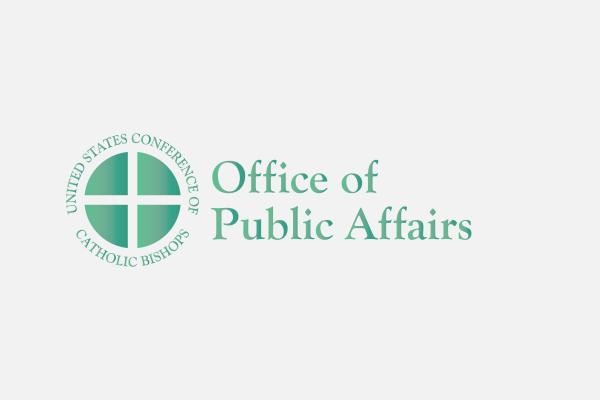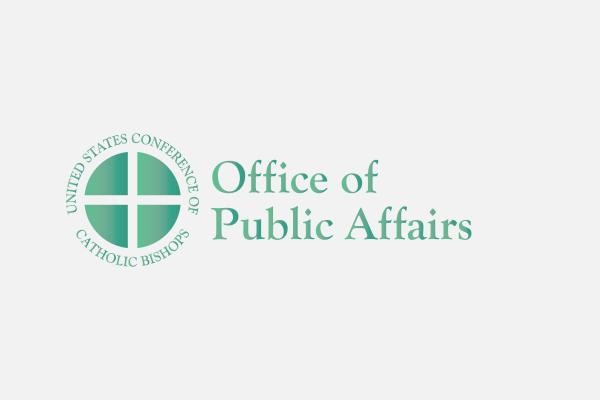""Living As Muslims And Catholics In The USA Today"" Is Topic Of Midwest Regional Dialogue Of Catholics And Muslims
WASHINGTON (September 28, 2006)--Basing their convictions on divine revelation, Catholics and Muslims are bearers of living faith traditions that offer humanity guidance in the way of peace, reconciliation, and the virtuous life.
September 28, 2006
WASHINGTON (September 28, 2006)--Basing their convictions on divine revelation, Catholics and Muslims are bearers of living faith traditions that offer humanity guidance in the way of peace, reconciliation, and the virtuous life. At a time of continuing public debate on the role of religion in American life, the Midwest Regional Dialogue of Catholics and Muslims met recently to discuss the challenges of living as faithful Muslims and Catholics in this country, given the complexity of a society that is secular and multicultural.
The Midwest Regional Dialogue of Catholics and Muslims met at the Retreat Center at St. John's in Plymouth, Michigan, September 12-13.
Professor Anas Malik, Xavier University, explored the topic of Interreligious Liberative Collective Action (ILCA) and its use with respect to "eco-human justice". The paper suggested that although everyone wants to believe that high common principles are behind all actions, the reality usually presents some degree of uncertainty. He offered a new metaphor (the Prisoner's Dilemma metaphor) that captured this problem in a formal way and more appropriately represents it as a problem of strategic collective action rather than an unexamined presumption of harmony. He noted that the analysis serves to overcome participants' cynicism about the prospects for meaningful ILCA and offers some specific guidelines through which it can be successful.
Professor Donald Mitchell of Purdue University followed with a paper on "Living as a Catholic Christian," in which he explored the role and dynamics of the laity in the Catholic Church. Professor Mitchell cited documents such as Vatican II's Lumen Gentium (Dogmatic Constitution on the Church) and Apostolicam Actuositatem (The Decree on the Apostolate of the Laity) as well as Pope John Paul II's apostolic exhortation Christifideles Laici. Prof. Mitchell emphasized the importance of the laity's role in the life of the Church in finding creative responses to the challenges of a secular and multicultural society. He also showed how lay spiritualities, particularly in the context of new movements and associations of the faithful, developed in the 20th century as a means of opening up new perspectives for Catholic laity in the 21st century.
Discussion clarified the Catholic use of the term "evangelization," which does not mean "to proselytize" but to bring the values of the Gospel to all aspects of life. The dialogue clarified the manner in which egalitarianism in Islam is balanced by the role of holy persons and legal scholars in the community. In practice, in certain times and places, these leaders take on the functions of a hierarchical structure. This conversation opened up the question of authority in Islam and Catholicism. Respective motivations for dialogue were examined, providing the opportunity to ascertain the authority of the Bible and the Quran in harmony with intelligence and discernment in the respective traditions. Dr. Malik's paper provided the resources of anthropology and sociology for the discussion of the interactive dimension of the role of trust and of power in human groups. The topic of the 2004 dialogue on virtues rounded out the conversation, bringing together the perennial themes of scriptural revelation applied to the challenges of life in particular historical circumstances.
The next meeting of the Midwest Regional Dialogue will be on October 21 through October 23, 2007 at the Islamic Center of America, Dearborn, Michigan. The topic will be: "The Mission of Muslim-Catholic Dialogue in the USA" with particular attention to the following areas of concern:
- Best practices in local dialogues.
- Scope, limitations, and structures of regional dialogues.
- Achieving interreligious cooperation in social issues.
- Inter-faith prayer, experiences, precautions, and methods.
- Principles and ethics of dialogue in light of previous meetings in this cycle.
Participants in the 2006 meeting were: Auxiliary Bishop Francis R. Reiss of Detroit; Dr. Sayyid M. Syeed, Islamic Society of North America (ISNA); Fr. David Bruning, Diocese of Toledo; Dr. Muhammad Shafiq, Center for Interfaith Studies and Dialogue, Rochester, NY; Dr. Donald W. Mitchell, Purdue University; Dr. Thomas Ryba, St. Thomas Aquinas Catholic Center at Purdue University; Fr. Raymond Webb, Mundelein Seminary; Imam Hassan al-Qazwini; Dr. Anas Malik, Xavier University; Intisar Khanani; Michael Saahir, Nur-Allah Islamic Center; Sr. Joan McGuire, OP, Archdiocese of Chicago; Fr. William Skudlarek, MID; Michael Hovey, Archdiocese of Detroit; Judith Longdin, Archdiocese of Milwaukee; Inshirah Farhoud, Islamic Society of Milwaukee; Eide Alawan, Islamic Center of America; Victor Ghalib Begg, Council of Islamic Organizations of Michigan; Msgr. Patrick Halfpenny, Archdiocese of Detroit; Muktar Ahmad, Islamic Society of North America; Joan Crist of the Diocese of Gary; Ashfaq Lodhi, Islamic Society of North America; Dr. Khalid Mahmoud; Fr. Francis Tiso, Secretariat for Ecumenical and Interreligious Affairs, United States Conference of Catholic Bishops (USCCB).
Established in 1996, the Midwest Dialogue of Catholics and Muslims meets annually. Dr. Syeed and Bishop Reiss are the co-chairmen. The Dialogue's report, "Revelation: Catholic "& Muslim Perspective," was issued in 2005.
The Midwest Regional Dialogue of Catholics and Muslims met at the Retreat Center at St. John's in Plymouth, Michigan, September 12-13.
Professor Anas Malik, Xavier University, explored the topic of Interreligious Liberative Collective Action (ILCA) and its use with respect to "eco-human justice". The paper suggested that although everyone wants to believe that high common principles are behind all actions, the reality usually presents some degree of uncertainty. He offered a new metaphor (the Prisoner's Dilemma metaphor) that captured this problem in a formal way and more appropriately represents it as a problem of strategic collective action rather than an unexamined presumption of harmony. He noted that the analysis serves to overcome participants' cynicism about the prospects for meaningful ILCA and offers some specific guidelines through which it can be successful.
Professor Donald Mitchell of Purdue University followed with a paper on "Living as a Catholic Christian," in which he explored the role and dynamics of the laity in the Catholic Church. Professor Mitchell cited documents such as Vatican II's Lumen Gentium (Dogmatic Constitution on the Church) and Apostolicam Actuositatem (The Decree on the Apostolate of the Laity) as well as Pope John Paul II's apostolic exhortation Christifideles Laici. Prof. Mitchell emphasized the importance of the laity's role in the life of the Church in finding creative responses to the challenges of a secular and multicultural society. He also showed how lay spiritualities, particularly in the context of new movements and associations of the faithful, developed in the 20th century as a means of opening up new perspectives for Catholic laity in the 21st century.
Discussion clarified the Catholic use of the term "evangelization," which does not mean "to proselytize" but to bring the values of the Gospel to all aspects of life. The dialogue clarified the manner in which egalitarianism in Islam is balanced by the role of holy persons and legal scholars in the community. In practice, in certain times and places, these leaders take on the functions of a hierarchical structure. This conversation opened up the question of authority in Islam and Catholicism. Respective motivations for dialogue were examined, providing the opportunity to ascertain the authority of the Bible and the Quran in harmony with intelligence and discernment in the respective traditions. Dr. Malik's paper provided the resources of anthropology and sociology for the discussion of the interactive dimension of the role of trust and of power in human groups. The topic of the 2004 dialogue on virtues rounded out the conversation, bringing together the perennial themes of scriptural revelation applied to the challenges of life in particular historical circumstances.
The next meeting of the Midwest Regional Dialogue will be on October 21 through October 23, 2007 at the Islamic Center of America, Dearborn, Michigan. The topic will be: "The Mission of Muslim-Catholic Dialogue in the USA" with particular attention to the following areas of concern:
- Best practices in local dialogues.
- Scope, limitations, and structures of regional dialogues.
- Achieving interreligious cooperation in social issues.
- Inter-faith prayer, experiences, precautions, and methods.
- Principles and ethics of dialogue in light of previous meetings in this cycle.
Participants in the 2006 meeting were: Auxiliary Bishop Francis R. Reiss of Detroit; Dr. Sayyid M. Syeed, Islamic Society of North America (ISNA); Fr. David Bruning, Diocese of Toledo; Dr. Muhammad Shafiq, Center for Interfaith Studies and Dialogue, Rochester, NY; Dr. Donald W. Mitchell, Purdue University; Dr. Thomas Ryba, St. Thomas Aquinas Catholic Center at Purdue University; Fr. Raymond Webb, Mundelein Seminary; Imam Hassan al-Qazwini; Dr. Anas Malik, Xavier University; Intisar Khanani; Michael Saahir, Nur-Allah Islamic Center; Sr. Joan McGuire, OP, Archdiocese of Chicago; Fr. William Skudlarek, MID; Michael Hovey, Archdiocese of Detroit; Judith Longdin, Archdiocese of Milwaukee; Inshirah Farhoud, Islamic Society of Milwaukee; Eide Alawan, Islamic Center of America; Victor Ghalib Begg, Council of Islamic Organizations of Michigan; Msgr. Patrick Halfpenny, Archdiocese of Detroit; Muktar Ahmad, Islamic Society of North America; Joan Crist of the Diocese of Gary; Ashfaq Lodhi, Islamic Society of North America; Dr. Khalid Mahmoud; Fr. Francis Tiso, Secretariat for Ecumenical and Interreligious Affairs, United States Conference of Catholic Bishops (USCCB).
Established in 1996, the Midwest Dialogue of Catholics and Muslims meets annually. Dr. Syeed and Bishop Reiss are the co-chairmen. The Dialogue's report, "Revelation: Catholic "& Muslim Perspective," was issued in 2005.


